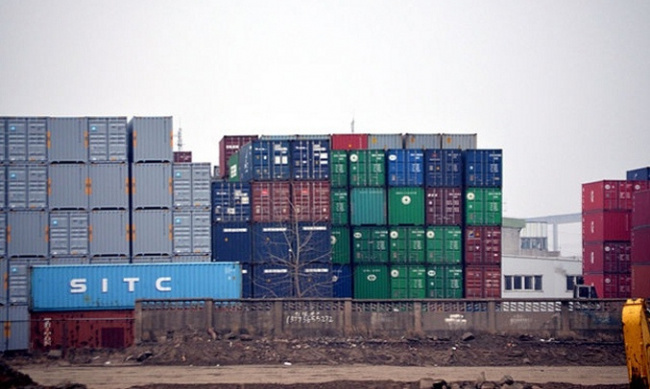Rolling for Initiative is a weekly column by Scott Thorne, PhD, owner of Castle Perilous Games & Books in Carbondale, Illinois and instructor in marketing at Southeast Missouri State University. This week, Thorne dives deeper into tariffs and their impact on the games industry.
Several companies in the games industry foresee major price increases due to the government’s imposition of across-the-board tariffs on almost all products coming into the U.S. Steve Jackson Games CEO Meredith Placko addressed the topic last week. From her post:
"Here are the numbers: A product we might have manufactured in China for $3.00 last year could now cost $4.62 before we even ship it across the ocean. Add freight, warehousing, fulfillment, and distribution margins, and that once-$25 game quickly becomes a $40 product. That's not a luxury upcharge; it's survival math."
Jamey Stegmeier of Stonemeier Games had a lengthy post on the effect of tariffs on game production as well, with these predictions:
"More publishers will turn to low-cost, high-markup products (e.g., packs of cards; not necessarily collectible card games, but that type of product). Not only do tariffs have a much lower impact on the margins of these products, but they’re also one of the few types of modern gaming products that can be produced in the U.S. at places like Delano and Artiforge."
"Crowdfunding and direct sales (online and at conventions) will become the backbone of most publishers. Tariffs will have a smaller impact on those direct prices than on retail prices, which involve a multiplier so distributors and retailers have sustainable margins. There will be far more games that are available exactly once and never again. Also, as proposed by Gamefound, we’ll probably see crowdfunding platforms allow creators to select different prices for customers in various regions due to tariffs."
Unfortunately, despite what the administration wants, we are not going to see game publishers shifting production back from China to the U.S. for a number of reasons. Steven Heumann of Super Heumann Creative reported on his website about spending a year with Quimby’s Toys and Games building a game manufacturing plant in the U.S. He learned a couple of things regarding why it is not done here during the experience:
“The reason things are cheaper to manufacture in China is A, the level of expertise and efficiency they have in the industry is very high, and B, the fact that they pay their workers significantly less than we do in the U.S. Simply put, you must pay people in the United States more money to work in a factory than they do in China."
As Heumann notes, pay in China is much lower than here in the U.S. Federal minimum wage is still $7.25 per hour and has been since 2009 (minimum wage here in Illinois increased to $15 this year). Compare that to an hourly wage of $3.70 in Beijing and it is incredibly hard for US manufacturers to compete. Chinese hourly wages have slowly increased over the years, but it will be decades before reaching parity with U.S. wages. Even so, manufacturers are shifting product to even lower-cost countries such as Malaysia, Thailand and Vietnam.
Surprisingly, RPGs and rulebooks may be exempted from the tariffs. There is a lengthy list of products the administration has exempted and "printed books, brochures, leaflets and similar printed matter, other than in single sheets" are on the list (arsenic, for whatever reason, is on the list of exemptions as well).
Unnoticed, for the most part, is the end of the de minimus trade exemption on May 2, 2025. Goods previously qualifying for the exemption will be subject to a duty of either 30% of the value or $25, whichever is greater, increasing to $50 on June 1, 2025. This, coupled with the delay in shipments due to the now required inspections, will wreak havoc with Temu and Shein's business model, as well as those game publishers using the exemption to ship orders DTC from China.
Comments? Send them to castleperilousgames@gmail.com.
The opinions expressed in this column are solely those of the writer, and do not necessarily reflect the views of the editorial staff of ICv2.com.

Column by Scott Thorne
Posted by Scott Thorne on April 7, 2025 @ 3:24 am CT



